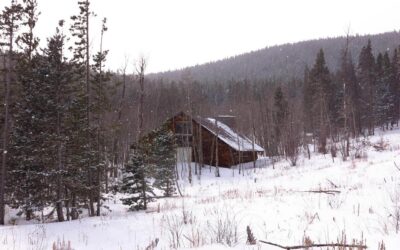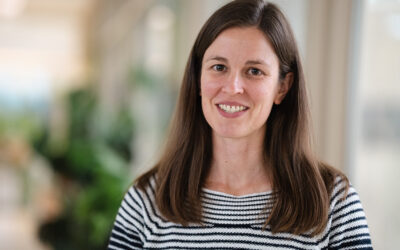Anne Barkley of University of Miami to be honored in a virtual ceremony on Oct. 27, 2020
Reno, Nev. (October 1, 2020) – The Desert Research Institute (DRI) is pleased to announce that the 22nd Annual Peter B. Wagner Memorial Award for Women in Atmospheric Sciences has been awarded to Anne E. Barkley from the Rosenstiel School of Marine and Atmospheric Sciences (RSMAS) at the University of Miami in Florida.
This competitive national award, conferred annually by DRI since 1998, recognizes a woman pursuing a graduate education in the atmospheric sciences who has published an outstanding academic paper and includes a $1,500 prize. The Wagner Award is the only such honor for graduate women in the atmospheric sciences in the United States.
Barkley is a fourth-year Ph.D. candidate in the laboratory of Professor Cassandra Gaston, and studies atmospheric aerosols (airborne particles of liquids or solids) and their impact on climate. Her paper, titled African biomass burning is a substantial source of phosphorus deposition to the Amazon, Tropical Atlantic Ocean, and Southern Ocean, was published last year in the Proceedings of the National Academy of Sciences (PNAS).
“Barkley was selected from a very strong pool of applicants from excellent colleges and universities around the U.S.,” said Vera Samburova, Ph.D., Chair of the Wagner Award Selection Committee and Associate Research Professor in DRI’s Division of Atmospheric Sciences. “We are very pleased to honor her for her outstanding work in atmospheric science.”
Barkley will present her paper at an online award ceremony on Tuesday Oct. 27, at 12 p.m. PST. This event will celebrate DRI’s long-term commitment to recognizing achievements of women in the sciences and will provide opportunities for the public to meet and engage with outstanding scientists.
Runners up for this year’s award included: Therese Carter (2nd place) from the Civil and Environmental Engineering Department at the Massachusetts Institute of Technology, “How emissions uncertainty influences the distribution and radiative impacts of smoke from fires in North America,” ACP 2020; Allison C. Vander Wall (3rd place) from the Department of Chemistry at the University of California, Irvine, “Evidence for a kinetically controlled burying mechanism for growth of high viscosity secondary organic aerosol,” Environ. Sci.: Processes Impacts, 2020; and Weimeng Kong from the California Institute of Technology, “Rapid growth of new atmospheric particles by nitric acid and ammonia condensation,” Nature 2020.
Details:
- Date: Tuesday Oct. 27, 2020
- Time: 12 p.m. PST
- The Zoom link can be provided by Vera Samburova (vera.samburova@dri.edu)
Background:
Ms. Sue Wagner—former Nevada Gaming Commissioner, Nevada Lieutenant Governor, and DRI employee and widow of Dr. Peter B. Wagner—created the Peter B. Wagner Memorial Award for Women in Atmospheric Sciences in 1998. Dr. Wagner, an atmospheric scientist who had been a faculty member at the Desert Research Institute since 1968, was killed while conducting research in a 1980 plane crash that also claimed the lives of three other Institute employees.
In 1981, Dr. Wagner’s family and friends established a memorial scholarship to provide promising graduate students in the Desert Research Institute’s Atmospheric Sciences Program a cash award to further their professional careers. Ms. Wagner later extended that opportunity nationally and specifically for women through the creation of the Peter B. Wagner Memorial Award in 1998.
More information: https://www.dri.edu/about/awards-and-scholarships/wagner/
###
The Desert Research Institute (DRI) is a recognized world leader in basic and applied interdisciplinary research. Committed to scientific excellence and integrity, DRI faculty, students, and staff have developed scientific knowledge and innovative technologies in research projects around the globe. Since 1959, DRI’s research has advanced scientific knowledge, supported Nevada’s diversifying economy, provided science-based educational opportunities, and informed policy makers, business leaders, and community members. With campuses in Reno and Las Vegas, DRI serves as the non-profit research arm of the Nevada System of Higher Education. For more information, please visit www.dri.edu.


